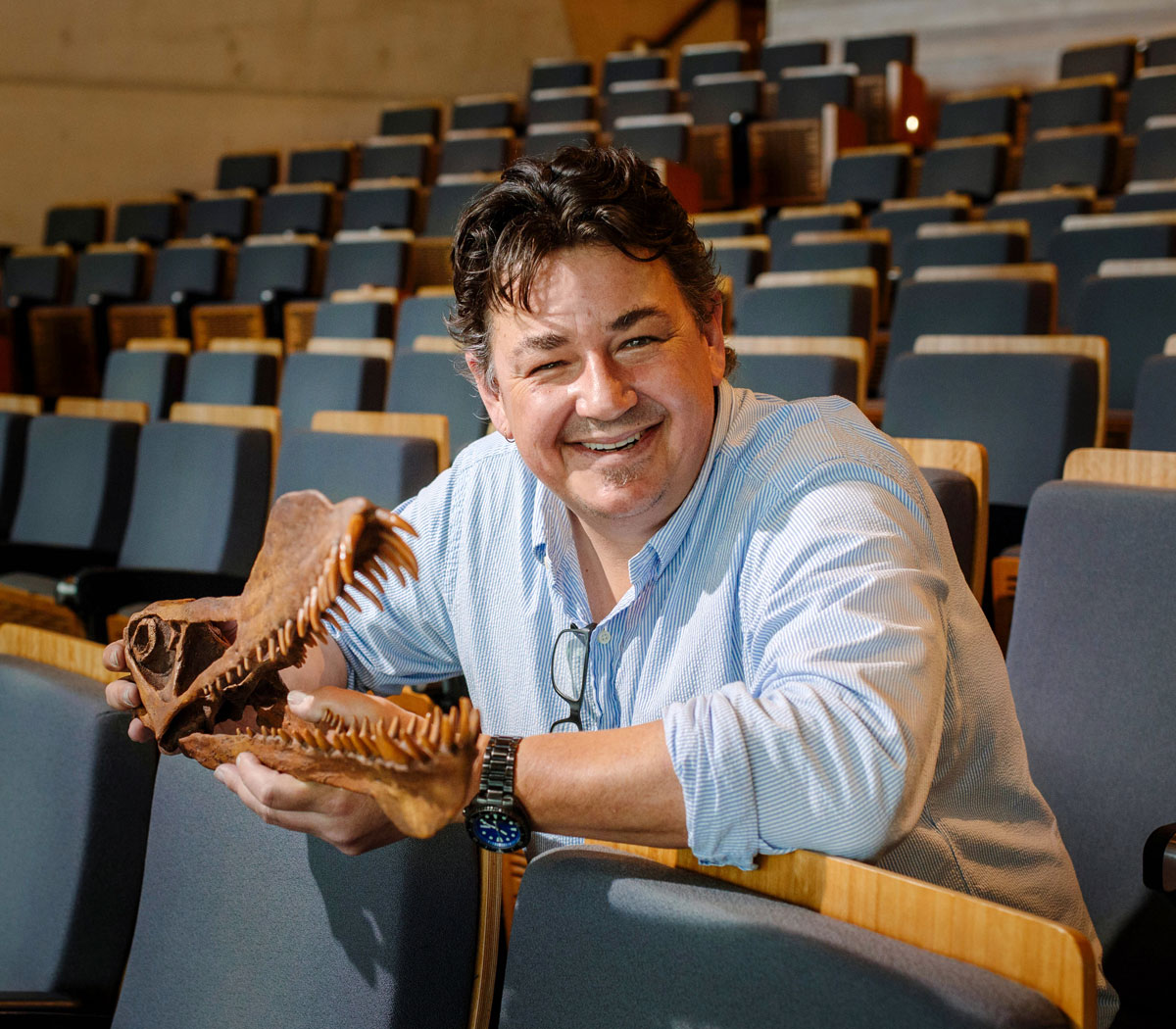Fearsome, flying and forgotten - Australia's prehistoric pterosaurs
Pterosaurs were a successful and diverse group of reptiles – the very first back-boned animals to take a stab at powered flight. In 2011, a fossil was uncovered on Wanamara Country, near Richmond in North West Queensland, and was revealed to be Australia’s largest flying reptile – a pterosaur with an estimated seven-metre wingspan.
More recently, University of Queensland PhD candidate Tim Richards, from UQ’s Dinosaur Lab in the School of Biological Sciences, led a research team that analysed a fossil of the creature’s jaw.
With its spear-like mouth and enormous wingspan, Thapunngaka shawi soared like a fearsome dragon above the ancient, vast inland sea once covering much of outback Queensland, and would have been the stuff of nightmares for unsuspecting dinosaurs below.
This month at BrisScience, hear how this discovery unveiled a new species and join Tim for a night of pterosaur tales.
Doors open at 6pm. Lecture commences at 6.30pm and will include an interactive Q&A session. Unfortunately we are currently unable to provide food and drinks after BrisScience.
Watch the recording
Recording of "Fearsome, flying and forgotten: Australia's prehistoric pterosaurs" talk (YouTube 1hr 5min)
Meet the presenter
 Tim Richards joined The University of Queensland’s Dinosaur Lab in 2017. His PhD focusses on pterosaurs from western Queensland, Australia. The project, under the supervision of Dr Steve Salisbury, integrates taxonomy and comparative morphology analyses with the aim of deciphering the affinities of currently undescribed material and its implications for the evolution of Australian pterosaurs.
Tim Richards joined The University of Queensland’s Dinosaur Lab in 2017. His PhD focusses on pterosaurs from western Queensland, Australia. The project, under the supervision of Dr Steve Salisbury, integrates taxonomy and comparative morphology analyses with the aim of deciphering the affinities of currently undescribed material and its implications for the evolution of Australian pterosaurs.
As an undergraduate, he majored in genetics and palaeobiology at the University of New England, NSW, receiving numerous awards including the prestigious Vice Chancellor’s Scholar Award for three consecutive years. While still affiliated with UNE, Tim completed a 1st Class Honours thesis on Ediacara-type fossils from the Lower Cambrian Uratanna Formation of South Australia under the supervision of Prof. John Paterson.
Tim was also a research assistant at the Brain-Behaviour Research Group at the University of New England, where he contributed to various publications investigating the association between stress and depression in prostate cancer patients.
View the livestream
The livestream will be available to watch here from 6.30pm on Monday 8 November 2021.
Submit your question for the Q&A session by visiting bit.ly/BrisSciQA or by scanning the QR code.

We recommend viewing the livestream via Google Chrome browser. If you are having difficulty viewing the livestream, please send us a message via the QR code and include your name and email.
About BrisScience
BrisScience is a monthly lecture series that brings science out of the labs and to the people, making it accessible to all – from scientists, to scientists-at-heart.
Run by The University of Queensland, BrisScience has been delivering engaging lectures on diverse topics from local and international scientists for over a decade.
BrisScience speakers are leaders in their given fields and deliver dynamic presentations based on cutting-edge research.
The University of Queensland has been running BrisScience since 2005, bringing the best and brightest scientific minds to the people of Brisbane – from early career researchers to Nobel Laureates!
| Time | 6:30pm to 7:45pm (light refreshments 7:45-8:30pm) |
|---|---|
| Venue | Auditorium 1, State Library of Queensland, Stanley Place, South Bank |
| Cost | Free - Eventbrite ticket required |
Subscribe
Sign up to be on our mailing list and be the first to know the latest BrisScience news, events and announcements!
The mailing list is used only to advertise upcoming BrisScience talks. If at any time you decide that you no longer wish to receive the emails, you can unsubscribe from the bottom of your latest email.




